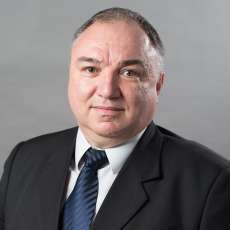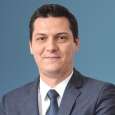EnergoBit started its activity in 1990 and developed continuously, providing a full range of products and services in the field of electrical energy. The company stands of four key pillars: in-house production of electrical equipment (low and medium voltage), electrical engineering, operation and maintenance for electrical systems and general contractor for energy projects.
EnergoBit has had a very successful run in its 29 years of existence. What was the reasoning behind employing a new business strategy?
We have used several strategies throughout time and we focused on different capabilities at different points in our existence. Looking back a few years, our name was closely connected to the renewable energy boom in Romania. For our business this meant becoming involved as a general contractor, for works that amounted to more than 2000 MW, of which about 1800 MW in wind power (out of the total of 3000 MW that were installed - this fact means we handled more than half of the major projects that were developed). As the investment appetite for renewable energy decreased, we found it necessary to shift our focus as well.
The new strategy includes two core components: one is related to major projects developed by transport and distribution operators and the second is related to the area of industrial consumers. The strategy is more technical and it relates to the appearance of smart solutions and generally the trend towards digitalization. This brings many opportunities to be captured and our goal is to become a leading player in this market. It is a rather natural process in our evolution as a company, our DNA remains the same but we strive to get closer to what the market needs at this particular point in time.
Energy efficiency is a growing concern in Romania. What contribution can EnergoBit bring in this matter?
There is no universal solution for the problem of energy efficiency; it is rather a sum of factors that need to come together. The intervention should be looked at in a global way, having in mind the production, distribution, transport and also the end consumer. It is not possible for only one of these elements to introduce measures of energy efficiency unless the entire chain is considered.
Many of the products that we put forward contribute piece by piece to increasing energy efficiency. SCADA systems for instance allow a much faster command, a speedier identification of defects and generally fewer losses in the system. Another example is that of low and ultra-low losses distribution transformers, which we produce ourselves. When we propose a project which can replace a transformer that works at the 20 years ago standards with products that due to the evolution of technology incorporate modern day demands, the performance becomes significantly higher. To illustrate this better, we can consider the example of lighting which went through various phases of development, from incandescent bulbs to tube lighting and then to led; just by replacing the source of lighting based on evolved technology we were able to reduce consumption ten fold, while maintaining the same level of comfort. There are so many solutions already available technically speaking, what is important now is the market’s willingness to actually implement them.
What are some of the most important challenges associated with operating in the Romanian business environment?
There are two important points that should be considered by public authorities. The first is related to a long term vision for the industry, going as far as 2030-2040, and this vision needs to be coupled with a determination that makes it possible to actually achieve the desired results.
The second important element which I have noticed primarily from foreign investors that were eyeing the Romanian market and which became very important for local investors as well is predictability in legislation. When there is a law, regardless of the sector or what the respective law proposes, what is essential is that it remains stable so that you allow business plans or investment schemes to be based on something predictable. In the case of renewable energy for instance, it would have been preferable (and the market would have still been attractive) if the incentives were lower but investors did not have to deal with such unexpected changes in legislation.
Is EnergoBit looking to seize opportunities outside Romania’s borders?
In the last few years our international activity has accounted for about 10% of our business. Looking back, this was rather a result of circumstances; we seized opportunities that came our way. Recently, however, we have started paying more attention to outside markets. We now have people in the company that are dedicated to following international markets so we are talking about a proactive, calculated approach.
In terms of markets we look with priority at countries in the near vicinity, such as the Republic of Moldova, Hungary and the former Yugoslav space. At present, the value of contracts that we have in progress in these markets amount to 15 M EUR. The second target that we have in mind is the Gulf area. We are just in the process of setting up EnergoBit Arabia, which already obtained its first authorization, and 2019 will be a year dedicated to presentations and general set up. Come 2020, we expect it to start becoming a self-standing business.






